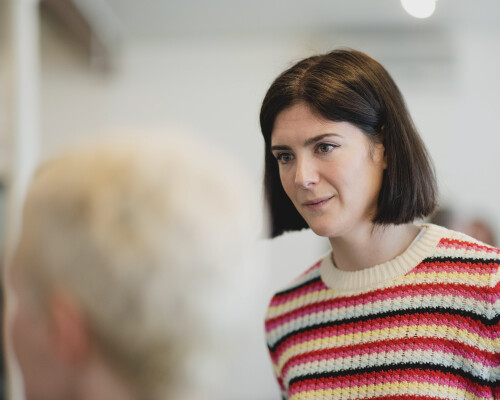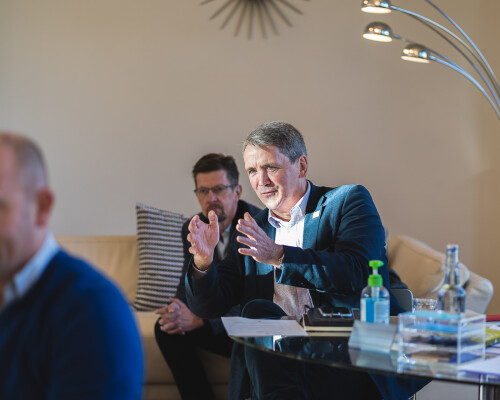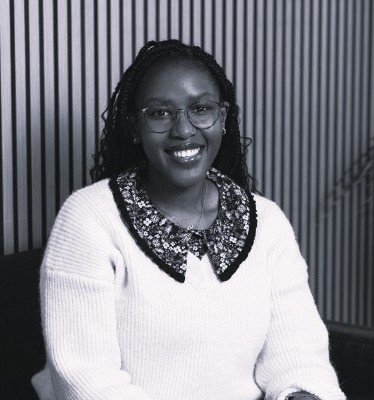In this month’s edition of View from the Top, we explore the evolving landscape of talent development through candid conversations with two HR heavyweights, Chief People Officers Rosemary McGinness of Weir Group and Maria Stanford of WSH. Weir Group is a FTSE 100 engineering business headquartered in Glasgow, which operates across more than 60 countries and is a global leader in mining technology and solutions. WSH is a leading UK-based hospitality and catering group, whose brands, including BaxterStorey, Benugo, and Holroyd Howe, serve workplaces, education, and leisure sectors across the UK and Europe. Both organisations place people and culture at the heart of their success, making their Chief People Officers uniquely positioned to discuss what modern leadership really requires.
The Self-Awareness Imperative
For both McGinness and Stanford, effective leadership starts not with authority but with awareness — awareness of self, of others, and of the need to keep evolving.
“Nobody will develop if they don’t buy into the ‘why” says McGinness.
“If they don’t accept feedback, no course or mentor will change that. You have to start with why it’s important for them.”
Stanford shares this belief while adding: “Some leaders think they have nothing left to learn.”
Ultimately, highlighting that awareness is the foundation on which every skill is built.
When Development Meets Resistance
Growth isn’t always comfortable. Both leaders describe moments when feedback is rejected or when leaders resist learning altogether.
Stanford has seen the full range of reactions, from enthusiasm to outright resistance: “For others, it’s fear. The fear of showing vulnerability. That old belief that the leader must always have the answer still exists, and we need to challenge it.”
“In one case, we made it clear that development wasn’t optional. We wanted them to succeed, but also that if they didn’t engage, there would be consequences. It wasn’t about punishment; it was about clarity.”
She emphasises that leaders must create the conditions where people feel safe enough to engage honestly with feedback, even when it’s uncomfortable.
McGinness emphasises the importance of presenting evidence: “If someone doesn’t agree with feedback, we go back to examples. Objectivity is key, show the impact their behaviour has on others.”
What We Can Learn from Psychometrics and 360 Feedback
Psychometrics, coaching, and structured development programmes can be invaluable, but only when there is openness and the will to engage...
McGinness highlights her organisation’s structured leadership development approach, which combines 360 feedback with personalised growth plans. “It’s a significant investment,” she says,
“[Investing in development] gives us a great starting point. People value the insight, and sometimes, they take it home and share it. It helps them understand themselves better.”
For Stanford, effective learning depends on creating psychological safety:
“The best development happens when people feel supported,” she explains.
“It’s about creating environments where leaders can learn without fear.”
A Culture of Continuous Growth
A striking commonality between the two leaders is their shared belief that learning agility, not perfection, defines success.
Stanford says: “It’s not about knowing everything... It’s about staying open. Leadership development is never done; it’s a lifelong practice.”
McGinness agrees, “Learning agility is underestimated… People who can learn quickly, take feedback, and adapt, those are the ones who move forward.”
That openness, both leaders note, is often cultivated through experience, the projects that stretch us, the colleagues who challenge us, and the mentors who encourage us to take the leap. Growth, in other words, is less about structured progression and more about staying curious and courageous along the way.
Key Takeaways
- Self-awareness is the foundation — leaders must understand themselves before they can grow others.
- Feedback works when it’s believed, not imposed. Trust and honesty enable development.
- Learning agility is a future skill. Adaptable leaders will thrive where static leaders stall.
- Culture matters. When organisations normalise reflection, vulnerability becomes a strength.
- Development is personal. True progress begins when leaders own their learning journey.
Both leaders' reflections offer a grounded, human perspective on what it takes to grow leaders, foster learning, and navigate resistance in today’s workplace. Leadership development is not a one-size-fits-all process. As they demonstrate, it requires a blend of experience, mindset, feedback, and self-awareness. The key lies in offering opportunities but also in helping leaders recognise their value, embrace vulnerability, and take ownership of their growth.
If you are interested in learning more about how School for CEOs supports organisations through Psychological Profiling, email info@schoolforceos.com to speak to a member of our team.





